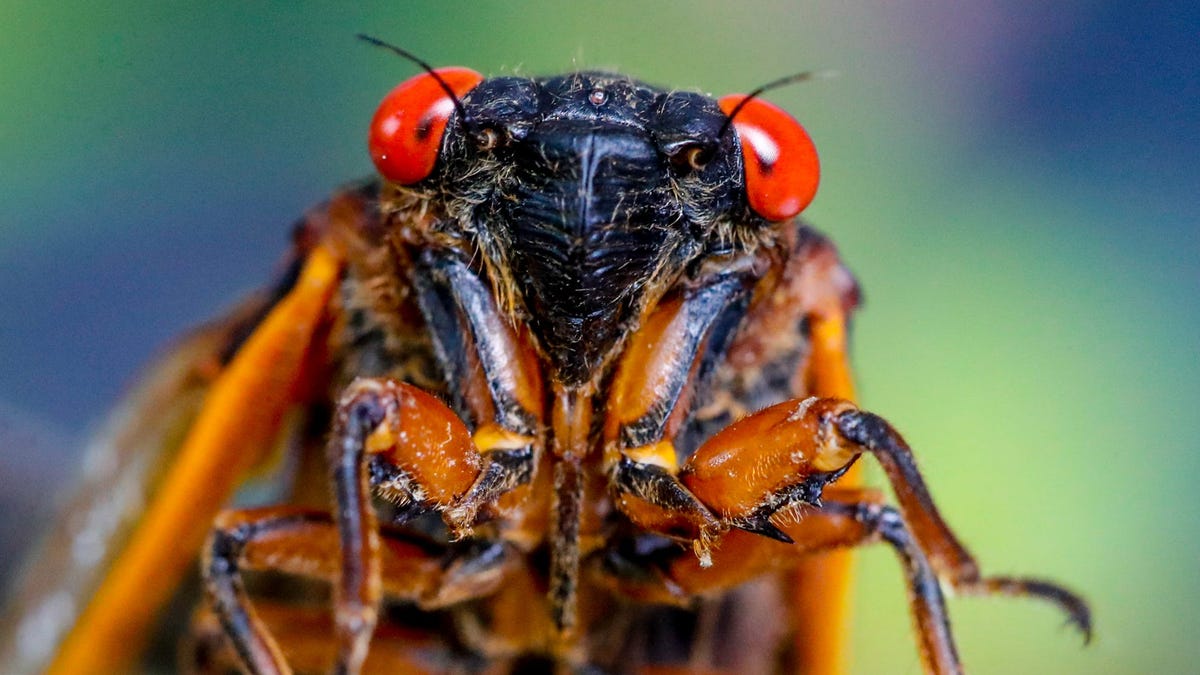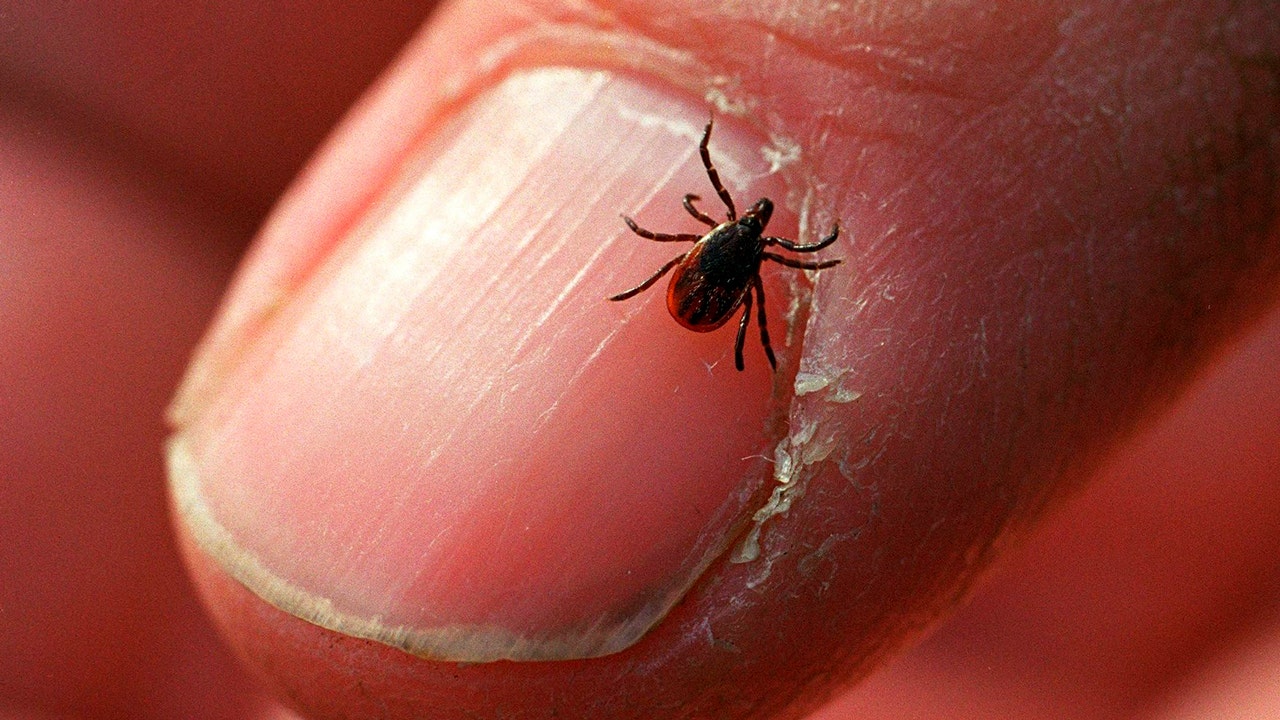Missouri
A warning for southwest Missouri cattle farmers: watch for black vultures

SPRINGFIELD, Mo. (KY3) – Black vultures are ruffling the feathers of cattle farmers across south and central Missouri.
Farmers in the Ozarks say the vultures are killing newborn calves and other small cattle. Brian Nimmo has had this farm in his family for more than 100 years. He says it’s more than his livelihood.
“I’m speaking for all producers about you take this personally because you’ve raised these,” said Nimmo. “Like all these heifers were home-raised, they go back to my grandparents, and I got my first cow in 1982. And some of that lineage goes back to them.”
One day Brian noticed one of his cows crying out for its baby. He found that it had been ripped apart by black vultures.
“The calf was still alive, we’re able to bring it home, we had to euthanize it,” said Nimmo. “So that cows lost her production for the year. So at that point, you either keep her on and carry her through, even though she’s not producing and or seller, and take your hit that way.”
Nimmo and cattle producers around the areas of south and central Missouri are taking steps to scare off the birds to protect their calves, the experts at the USDA say you’ll want to take as many of those steps as you possibly can.
“You know, having early calving season is one time having a herd mentality during calving,” said Dan McMurtry, district supervisor for USDA Wildlife Services. “Another thing, pull your bull have short calving season, harass them with pyrotechnics. So we have products called pyrotechnics.”
After his calf was killed he was reimbursed up to $200 for the vet bills and necropsy and has the cows much closer to the home. It’s important to note that farmers *must take their animal to the vet — within 24 hours to get that re-imbursement. The money is capped at 200 dollars for each positive result for the test showing the animal’s death was caused by a black vulture.
He says he’ll monitor dead trees on his property, monitor any newborn calves closely and move the herd closer to the man-made structures taking the threat very seriously.
“If you just be proactive as much as you can be, you know, you monitor your herd and monitor the flight pattern of the birds see where they’re staying at,” said Nimmo. The one that we had it hit about eight o’clock in the morning, we got there at 10. So we were just about two hours behind it, but you can always be there.
According to the Missouri Department of Agriculture, some ways to help keep the birds off your farm are:
- Pen birthing livestock near human activity to enable closer observation and a quicker response to problem situations, or keep expectant animals in pastures nearest to people.
- Condense birthing time frame, so animals can be monitored closely.
- Place black vulture effigies (replicas) around calving areas to scare away live vultures. Hang them by their feet and suspend in the air, so they can be seen from a distance.
- Harass and scare black vultures away from your herds or flocks. Examples: create loud noises (horns, starter pistols, shell crackers, propane cannons), spray water, and point lasers at the roost.
- Use a guard dog to frighten and chase away black vultures.
“Black vultures are federally protected by the Migratory Bird Treaty Act of 1918. This means the birds, their nests and eggs cannot be killed or destroyed unless a permit is obtained from the Missouri Farm Bureau. Permits are free and producers can obtain up to 10 annually. Apply for a permit by contacting Julie Waldrop at Julie.Waldrop@mofb.org or (573) 893-1417. Find further permit information at mofb.org.” said the Department of Agriculture on its website.
For more information on how farmers can fight back check out the Dept. of Agriculture’s page on black vultures. Also, the University of Missouri’s extension office information can be accessed here.
To report a correction or typo, please email digitalnews@ky3.com
Copyright 2024 KY3. All rights reserved.

Missouri
Missouri legislature finishes chaotic session amid paralyzed Senate

JEFFERSON CITY, Mo. (KFVS) – Missouri saw a chaotic end to the 2024 legislative session Friday after a stalled Senate skipped the final day of work.
The hotly-debated resolution to make constitutional amendments more difficult to pass on the ballot upended debate and became a “hot potato” between the House and Senate. Each chamber repeatedly referred the measure to the other, the Senate asking for a conference committee to work out the differences and the House refusing to recede from its position.
Senate leaders on Friday said this session revealed a vast difference between lawmakers who want to find compromises with colleagues and those who want to battle to impose their political will.
In the end, Democrats and the majority of Republicans sent a message that the Missouri General Assembly, particularly the Senate, must remain a place of compromise, where lawmakers find a way to work together.”
“My theory is, if you treat people with respect, you’re willing to listen to them, and you’re willing to work with them, that you can get done the things you need to get done,” said Senate Majority Floor Leader Cindy O’Laughlin.
The five-member “Freedom Caucus” faction of Republicans, led by Harrisonville senator Rick Brattin, called their party’s leaders “cowardly.”
“The Republican party has turned into feckless, spineless, ambassadors of nothing, and not fighting for what’s right,” Brattin said.
Outgoing Senate Minority Leader John Rizzo, D-Independence, said decency and democracy ultimately overcame division and distrust.
“I think that decorum won, I think the bullies lost,” Rizzo said. “I don’t think that matters if you have a ‘D’ or an ‘R’ by your name. I think the [Senate] pushed back on being pushed around all year in the last throes of session.”
With the senate adjourned, the Missouri House spent Friday finishing several bills including a major public safety omnibus package.
That bill includes tougher penalties for hurting or killing a law enforcement dog, making it a felony to run from police, and outlawing celebratory gunfire.
But some major bipartisan bills failed to pass including open enrollment in public schools, a ban on child marriage, and Governor Parson’s top priority of new child care tax credits.
“Just because we didn’t pass legislation doesn’t mean that the issue has gone away,” said State Sen. Lauren Arthur, D-Kansas City. “If anything, it’s going to get worse, because there hasn’t been legislative action taken.”
Governor Parson declined to say whether he’ll call lawmakers back for a special session this summer, though many lawmakers predict he will do so for the general assembly to craft a supplemental budget.
Copyright 2024 KFVS. All rights reserved.
Missouri
Legislation enacting total ban on child marriage in Missouri dies in the House • Missouri Independent

Child marriage will remain legal in Missouri for at least another year after Republican House leaders said they don’t have enough time to pass it.
Under current Missouri law, anyone under 16 is prohibited from getting married. But 16 and 17 year olds can get married with parental consent to anyone under 21.
Under legislation that cleared the Senate with virtually no opposition earlier this year, marriage would be banned for anyone under 18. “It was very surprising that the House has not allowed it to come to the body,” said Republican state Sen. Holly Thompson Rehder of Scott City, who sponsored the bill along with Sen. Lauren Arthur, a Democrat of Kansas City.
“Banning child marriage should not be controversial. When I filed this bill, I had no idea it would be controversial,” Rehder added.
The bill was stalled by a group of Republican critics in a House committee, who said it would constitute government overreach and infringe on parental rights. It finally passed out of committee this week after several of those critics were not present at the vote.
But House leadership told reporters Friday morning it was too late to place the bill on the House calendar for debate. Session ends at 6 p.m.
“There’s some interest there, unfortunately the rules preclude us from doing that today,” said House Majority Leader Jon Patterson, a Lee’s Summit Republican.
Arthur said the failure is “shameful.”
“When I talk to people back home, they’re surprised to learn that minors can get married in the first place,” Arthur said. “And these are the kinds of headlines that my friends who are apolitical or live in different parts of the country send me and say, ‘What is happening in Missouri?’
“It makes us look bad,” she said, “but more importantly, we’re not doing enough to protect young girls who are forced into marriages and their lives are worse in every way as a result.”
Twelve other states have in recent years banned child marriage.
Rehder said she was told only around 20 out of 163 House members were opposed. She also said the House could have voted to suspend its rules to allow the bill to be debated and passed before adjournment, but suggested that House Speaker Dean Plocher refused to let the bill move forward to avoid embarrassing Republicans who are opposed to banning child marriage.
“We have the votes,” Rehder said, but it didn’t come up “because the speaker didn’t want to put his members in a bad situation.”
“…Because you shouldn’t be against banning child marriage.”
Rehder said she’s hopeful the bill will succeed next year, in large part due to the “public pressure” of state and national media.
“You cannot sign a legal binding contract in Missouri until you’re 18. But we’re allowing a parent to sign a child into a lifetime commitment. It’s ridiculous.”
Rehder attributed some of the opposition to generational differences.
“People who have been against it — the men who have been against it — who talk to me about it have said, ‘Oh, my grandmother got married at 15.’ Well, yes I did too, mine was 40 years ago,” Rehder said.
“And it didn’t work out because I was operating on not an adult mindset.”
Fraidy Reiss, an activist who founded the nonprofit against forced marriage Unchained at Last was active in testifying in support of the bill in Missouri and has worked nationally to pass similar legislation. Upon hearing the news, Reiss said: “How can legislators live with themselves?”
She added that “dozens of teens will be subjected to a human rights abuse and legally trafficked under the guise of marriage in the coming year,” due to the failure to pass the legislation.
“…How will they explain that to their constituents?”
Missouri
It’s time — the cicadas are coming. Here’s what to know about Missouri’s summer brood

2024 cicada-geddon: Trillions expected to swarm parts of US
Trillions of cicadas, which last came together in 1803, will cover a larger than normal area of the United States.
If you’ve spent any time outdoors the last few days, you may have heard the rhythmic buzzing — or screaming — of cicadas beginning to emerge from the ground. For the first time in 221 years, more than one million cicadas will emerge simultaneously throughout the country.
Deemed a rare emergence, two broods of cicadas are making their way to the surface this summer. The largest brood, known as Brood XIX, appears every 13 years and Brood XIII emerges every 17 years. The two broods haven’t emerged in the same year since 1803 and won’t again until 2245.
Southwest MO to see only one brood
Broods XIX and XIII will appear in 17 states this spring and summer: Alabama, Arkansas, Georgia, Illinois, Indiana, Iowa, Kentucky, Louisiana, Michigan, Mississippi, Missouri, North Carolina, Oklahoma, South Carolina, Tennessee, Wisconsin and Virginia. However, not all states will see an overlap of the broods.
When it comes to “Cicadageddon” in Missouri, only counties in the northeast part of the state will see members of both broods. In southwest Missouri, folks will only experience buzzing from Brood XIX, which hasn’t emerged since 2011.
In addition to Missouri, Brood XIX stretches from southern Iowa to Oklahoma, through the southern coastal states and as far east as Washington D.C.
When will they emerge, when will they leave?
The emergence of cicadas is dependent on weather, when soil 8 inches below ground reaches 64 degrees Fahrenheit. In Missouri, this tends to be mid-May. Folks throughout the state of Missouri have likely already seen a few of the critters out and about.
The lifespan of a cicada is typically four to six weeks, so the insects will begin to die off in late June.
What do Brood XIX cicadas look like?
Unlike annual cicadas, which are greenish in color, Brood XIX cicadas have black bodies, orange markings, clear wings and red eyes. Brood XIX cicadas can grow 1-2 inches in length and have a wingspan of 3-4 inches.
How do cicadas make that distinctive buzzing sound?
Cicadas are considered one of the loudest insects, buzzing up to 90-100 decibels. But it’s only male cicadas that make that distinctive buzzing sound. Female cicadas do not have the necessary sound-producing organs.
Male cicadas have two vibrating membranes called tymbals that sit behind each wing. Each tymbal contains a series of ribs that bend and make clicking sounds when a male flexes its muscles. Cicadas repeat this movement 300-400 times per second, which result in the unique buzzing sound.
Two eardrums are also responsible for carrying the sound. By tightening the muscles around their eardrums and extending their abdomens, cicadas can alter the volume and pitch of their sound. The abdomen of a male cicada is almost entirely hollow, which helps to amplify these sounds.
Though female cicadas cannot make these sounds, they respond to male cicadas with the flicking of their wings.
Do cicadas bite or sting?
Cicadas are harmless to humans and pets; they do not bite or sting. If you decide to pick one up, their prickly feet make poke your skin, though.
Cicadas can, however, be dangerous to young trees, as cicadas lay their eggs on small tree branches. To protect young saplings, cover them in a mesh or netting to keep the cicadas out.
What’s the difference between cicadas and locusts?
Though both are large and loud, cicadas and locusts are two different species of insects. Locusts belong to the same family as grasshoppers and are more destructive, feeding on much plant life. Though cicadas lay their eggs in trees, they do not chew leaves or harm crops. They only drink tree sap.
Greta Cross is the trending topics reporter for the Springfield News-Leader. She has more than five years of journalism experience covering everything from Ozarks history to Springfield’s LGBTQIA+ community. Follow her on X and Instagram @gretacrossphoto. Story idea? Email her at gcross@news-leader.com.
-

 Politics1 week ago
Politics1 week agoRFK Jr said a worm ate part of his brain and died in his head
-

 World1 week ago
World1 week agoPentagon chief confirms US pause on weapons shipment to Israel
-

 World1 week ago
World1 week agoConvicted MEP's expense claims must be published: EU court
-

 News1 week ago
News1 week agoStudents and civil rights groups blast police response to campus protests
-

 Politics1 week ago
Politics1 week agoCalifornia Gov Gavin Newsom roasted over video promoting state's ‘record’ tourism: ‘Smoke and mirrors’
-

 Politics1 week ago
Politics1 week agoOhio AG defends letter warning 'woke' masked anti-Israel protesters they face prison time: 'We have a society'
-

 News1 week ago
News1 week agoNine Things We Learned From TikTok’s Lawsuit Against The US Government
-

 Politics1 week ago
Politics1 week agoBiden’s decision to pull Israel weapons shipment kept quiet until after Holocaust remembrance address: report
/cdn.vox-cdn.com/uploads/chorus_asset/file/25406819/STK051_TIKTOK_CVirginia_D.jpg)













